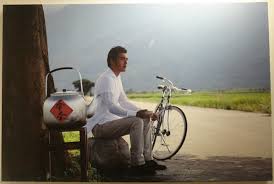11/1 週六下午 萬聖節變裝 party 歡迎來參加 詳情 活動聯絡人 凱玲 0983-418006
周二聚會點 丹提咖啡 寶慶店 晚上7:00~9:30台北市延平南路107號
(西門捷運站3號出口 往前走30公尺 向左看到全家便利商店巷進入 / 在中山堂對面)
連絡電話: 0976217450 Billy
周三基礎會話課程/週四實用會話課程 有 新聚會地點 新教室 歡迎您來參加
板橋區光武街48 巷13號 新埔捷運5號出口 7: 00PM---9:00PM
每周四 實用會話課程 /英文精緻閱讀 歡迎您來參加 詳情請點選
參看首頁 (周四 實用會話/英文精緻閱讀欄位)
朋友們 每周一 說吧!英文讀書會 在桃園有英文練習聚會 地址: 桃園中正路50號 麥當勞 時間:700pm---9:00pm 歡迎您來參加
有幾位朋友,想參加討論,又覺得程度不夠,每周三有課程是從基礎會話學習歡迎加入 詳情參看首頁週三欄位
 生死相依:安樂死
生死相依:安樂死
couple' euthanasia新東方網
An elderly husband and wife have announced their plans to die in the world's first 'couple' euthanasia - despite neither of them being terminally ill.
Instead the pair fear loneliness if the other one dies first from natural causes.
Identified only by their first names, Francis, 89, and Anne, 86, they have the support of their three adult children who say they would be unable to care for either parent if they became widowed.
The children have even gone so far as to find a practitioner willing to carry out the double killings on the grounds that the couple's mental anguish constituted the unbearable suffering needed to legally justify euthanasia.
The couple, from Brussels, are receiving regular medical treatment for age-related ailments.
Francis has received treatment for prostate cancer for 20 years and is unable to spend a day without morphine and Anne is partially blind and almost totally deaf.
They always go out shopping together because they are both scared that one day the other will not return home.
They decided that life in a care home was not an option because of their fear they would end up bedridden without the strength to insist on euthanasia.
They planned to commit suicide on February 3 next year, their 64th wedding anniversary, by placing plastic bags over their heads after taking an overdose of sleeping pills.
'We want to go together because we both fear of the future,' said Francis. 'It's as simple as this: we are afraid of what lies ahead.
'Fear of being alone and above all, fear of the consequences of loneliness.'
Questions:
What do you think about euthanasia?
Do you agree or disagree with euthanasia?
Do you think euthanasia should be legal?
What to do if your loved one is terminally ill?
What to do if you are terminally ill?
What do you think about animal euthanasia?
How to deal with the fear of loneliness?
Euthanasia - pros and cons of mercy killing?

 廣告與購買習慣
廣告與購買習慣
How Advertising Manipulates Your Choices and Spending Habits (Adam Dachis/ lifehacker)
You see ads every day, whether it's on a web page, before a movie, or in the middle of a TV show, and it's easy to say "they're just ads" because, at worst, they feel like a nuisance or interruption. A lot of people have difficulty accepting the idea that ads are manipulative because we want to believe we're in complete control of our choices. While the concept of advertising isn't inherently problematic, we've moved on from the "Eat at Joe's" sign to far more complex and sometimes even moving, cinematic messages that are designed to create significant memories of a product. These memories are created because an ad succeeds at making us feel something—whether it's good or bad—and that emotional response can have a profound effect on how we think and the choices we make. Not all advertising is bad, but we're going to take a look at what's problematic, what isn't, and ways you can avoid the negative effects associated with so much of what you passively experience.
The Problem: Advertising Is for the Rich, Not You
Advertising exists because there's a product a company wants to sell and they want people to know about it so they can buy it. This much is obvious. Sometimes that product is a cleaning spray or a microwave oven, but often it's yet another article of clothing, a gadget, another meal out, or something else you don't necessarily need. These advertisements aren't for the average person with a small amount of spending cash, but rather they're for the rich.
Rich people don't make up a large portion of any population, but they're the ones with money to spend. They can see an ad, decide they want a product, go buy it, and it has very little effect on their wallet. The problem is that we all see the same advertising but can't necessarily afford the purchases. We all want the lifestyle of the rich, as we see it depicted in television, film, and commercials.
Questions:
How advertising manipulates our choices and
spending habits?
How does advertising influence people?
What type of advertising has the most
influence?
Pros and cons of advertising?
How to avoid the temptation from advertising?
How to stop the desire of buying stuff?
How to be a wise buyer?
Are you a compulsive shopper?
生死相依:安樂死
日前,比利時一對老夫婦宣佈將一起進行安樂死,雖然兩人都尚未病入膏肓。這將成為世界上第一對共同安樂死的夫妻。
生死相依:比利時夫婦決定同時安樂死
兩位老人之所以這麼決定是因為他們擔心如果其中一位先離開,剩下的那位會孤單地度過餘生。
89歲的法蘭西斯和86歲的安妮育有3個孩子,這3個已經成年的孩子表示父母有一位先去世,他們則無法照看剩下的那一位。
他們甚至已經找到了願意為父母進行共同安樂死的醫生,理由是兩位老人的心理痛苦已到了無法承受的地步必須進行安樂死。
這對來自布魯塞爾的老夫婦由於年老,正在進行定期治療。
法蘭西斯由於前列腺癌已經接受了20年的治療,他一天都離不開嗎啡,而部分眼盲的安妮也幾乎要成聾子了。
他們經常一起外出購物,因為兩人都擔心有一天另外一個會回不來。
生死相依:比利時夫婦決定同時安樂死
他們不想去養老院,因為他們擔心在養老院中臥床不起,連堅持安樂死的力氣都沒有。
他們之前還打算在明年2月3日—他們結婚64周年紀念的那天自殺,他們計畫先服用過量安眠藥,然後把塑膠袋套在自己頭上。
“我們想要一起離世,因為我們都對未來不報什麼希望了。”法蘭西斯說:“很簡單,我們都害怕接下來要發生的事。”
“其實就是害怕一個人孤孤單單地活著。”








0 意見:
張貼留言